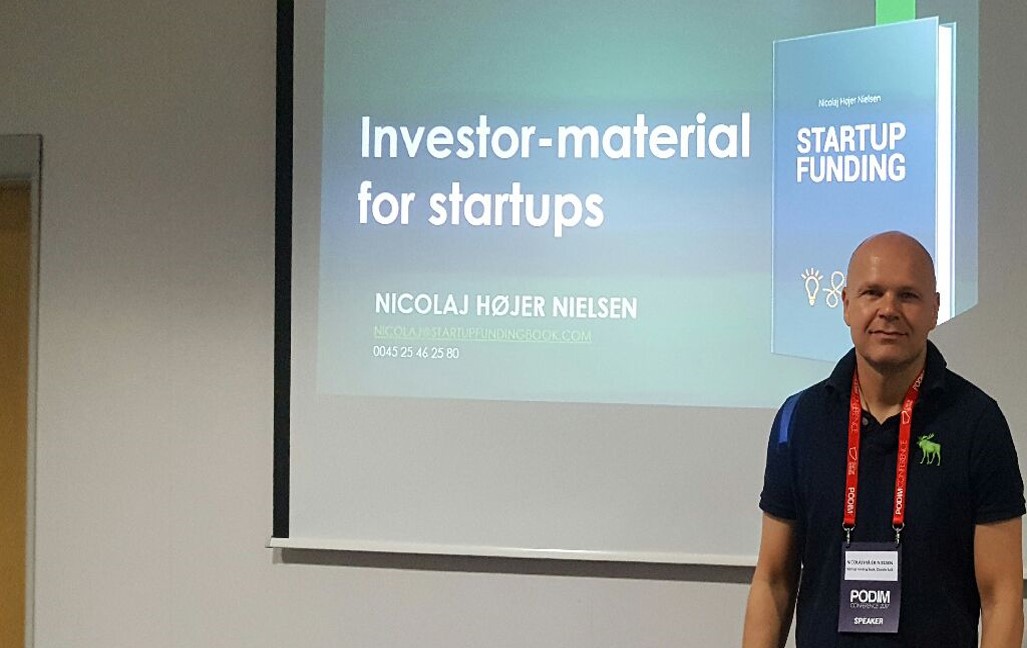Investor material for early-stage startups
Yesterday (May 10 2017) I held a workshop at the PODIM conference in Maribor, Slovenia. Topic of the workshop was which type of investor material do you need to attract investors for a early-stage startup.
My main points regarding investor material are:
- Investing in early stage startups is all about personal trust. Your startup don’t have that many data to show, so investors are mainly betting on the team/you. This means that the most important thing to convey in the investor material is that your team is world-class!
- The three most important things when reaching out to potential investors: 1. Get introduced by mutual contacts, 2. Do your research and contact the relevant investors and 3. Be specific when contacting them (don’t just ask for coffee).
- Regarding the need for introductions: All well-connected early-stage investors are getting a lot of requests per year – up to +1000 a year, but invest maybe in less than 10. This honestly mean that it’s really hard to get their attending if you are just cold emailing them. To stand out you need to get introduced via mutual contacts. This increased the chance that the investors are taking you seriously a lot!
- Who are the investors relevant for YOUR startup: 1. Investors that invest in the same risk/reward matrix your startup is current in, 2. Investors that are interested in your industry (and understands it) and 3. Investors that invest in startups that are in the stage your company is currently in.
- Do you really need a business plan ? I (and many other seasoned investors) don’t like business plans, because they are too long and often outdated. But this is really culture-dependent: Investors in some countries/regions still prefer along business plan. Check out what’s the status in your country before wasting too much time writing one.
- What you for sure need in your dialogue with potential investors are: 1. An intro email (as explained above), 2. An executive summary (the 1-2 page “teaser” describing your startup very briefly) 3. The pitch deck (the typically 15-slide PowerPoint presentation that replaces the long business plan) and 4. The budget.
- And please, don’t ask the potential investor to sign a Non Disclosure Agreement (NDA) before even meeting them. You first need to get them interested in your case (by disclosing non-confidential information), and most professional investors (business angels and VCs) will not even sign NDAs later in the process.
- Ps. do you really need money from investors to grow your startup? And if you do, do you need them now or can it wait until you have more traction? The first money you take from investors are very expensive (due to a low valuation of your company)!
Feel free to download the presentation here.
Best regards,
Nicolaj Højer Nielsen
